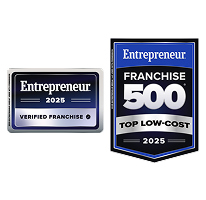If you’re considering a career change or fresh out of college and into the workforce for the first time, the insurance industry might not be at the forefront of your mind. For starters, you might wonder, “How do insurance agents make money?” Surprisingly to some, there are a few ways. There is also a slight technical difference between a broker and an agent. After you learn about that minor nuance and the various ways to secure your financial future, you will learn how to get started.
What Is a Broker Versus an Agent?
Most people use the terms interchangeably. There is, however, one minor point of divergence: brokers represent the client, while agents represent the insurer.
The broker’s mission is to solicit quotes and information from various companies for each buyer and determine the best fit for the product and price. Some clients prefer going through this intermediary because they have access to several companies and are more likely to find something that fits their unique needs.
An agent is a representative of a company or multiple companies. They are referred to as a captive agent when they serve just one provider. If they serve more than one, they are called an independent agent.
Whether working for a brokerage firm or agency, you can earn a lucrative career with multiple revenue streams from commissions, fees, and complementary products, plus occasional additional opportunities.
1. Commissions
The primary way an insurance agency makes money is through commissions on a variety of products. Although most companies provide a depth of ancillary products, the most common sources of sales come from policies related to life, home, auto, health, and dental insurance.
If you’re wondering, “How do insurance brokers make money?” It’s simple; they earn a commission, usually between 2% and 8% of each premium they sell. They typically earn a lump sum percentage against the first-year premium of a policy that they sell. Then they get a smaller but ongoing annual residual income payment over the policy’s entire life.
The quality of the product also factors into the commission structure. Many companies will pay higher percentages for certain products and more comprehensive coverages. Life insurance business is usually the biggest money maker for most insurers, so that particular product will likely secure a bigger paycheck for the salesperson. Additionally, policies that offer more robust services with higher premiums are likely to be more handsomely rewarded than cheaper products.
Many providers also offer supplemental commissions to agents or brokers who exceed quotas for volume, profitability, growth, retention, or other Key Performance Indicators (KPIs). Such allocations are usually set at the beginning of the year and get paid out at the year’s end. This is a way for companies to encourage and motivate people to perform at their absolute best. After all, who doesn’t want a nice bonus at the end of the year to go on vacation or purchase something special?
Whereas commissions are the primary source of income for agents and brokers, they’re not the only way to make money in this steadily growing industry.
2. Fees
One way for industry professionals to earn extra money is through fees, composed mainly of consultative services. Many states limit how much you can charge, but if a client expresses interest in securing your expertise on claims or policy changes, you are entitled to a fee as long as it is mutually agreed upon with the client.
Fees are an easy way to gain supplemental income. Salespeople who have been in the business for a few years can easily get familiar with all the ins and outs and can lend unique knowledge to clients simply by tapping into their developed skills.
3. Complementary Products
Basic life, home, auto, health, and dental policies can earn a nice commission. However, an insurer that has been around for more than a few years with a proven track record for quality coverage will typically extend its product offering into many other areas. The following is just a quick list of some of the most popular complementary policies:
- Pet health and discounts
- Renters
- Landlord
- Watercraft
- Motorcycle
- ATV
- RV/Mobile home
- SR-22 for high-risk drivers
- Commercial auto
- Rideshare
Some insurers also step out of the policy box to offer different products like tax preparation, roadside assistance, windshield repair, tire hazard protection, paintless dent repair, and others.
You can add a significant revenue stream by selling as many of these complementary products as possible. For example, many people love to travel, so why not offer traveler’s insurance when talking to a potential client about a more traditional product?
Also, pets are more popular than ever since the pandemic forced us to stay home. Veterinary bills can be quite expensive, and insuring someone’s pet can offer significant peace of mind. Why not offer quality coverage to take care of someone’s furry babies?
Renters insurance is also an affordable way for apartment dwellers to safeguard their belongings. The policies provide quality coverage at a price that makes it illogical not to have the coverage.
Agents and brokers understand the value of adding these products to their client proposals. Simply by taking the time to learn about them, you can add significant revenue.
With All These Revenue Streams, How Much Can You Expect to Make?
How does an insurance agent make money? Some professionals earn a yearly salary. This would be especially true for agents who work in the captive category. Of course, some places will tack on commission with an annual salary. Others will even add bonuses, which can be quite substantial and are usually available to brokers as well.
If you’re considering the insurance industry as a career option, you can make a good living, typically earning a yearly salary of around $50,000. This is an excellent option, but what if something much better was available and required no previous experience?
Freeway Franchise is looking for entrepreneurial-minded people to own and operate their own insurance location. You don’t need previous experience, but you must have the drive to succeed. Contact us by filling out our quick and easy online form or call one of our friendly and courteous franchise experts at 1-877-822-3024 to get started today!



